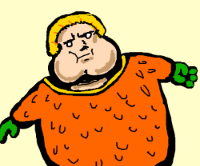Garodin, I apologize for the delay in responding...yesterday was a pretty busy day. After I re-read your question I realized I'm not completely certain what you're asking about, so I'll try to answer all the possibilities this could fall under (so be prepared for a long response). Garodin said: On the skill rolls, you mention a situational modifier. Although we have tried, we have been unable to figure out exactly how to add anything to the actual situational modifier, any help on the matter would be much appreciated. Generally speaking The Situational Modifier field is called the Trait Test Modifier field. It's located on the Basic Info tab, under the Miscellaneous section. I've updated the wiki to include the aka name for this field. If you enter a value in this field, any of the Trait Die Roll buttons on the sheet will automatically incorporate the modifier in the end results of the roll, nothing extra needed by you. When I say "Trait" I mean it would apply to the any of the Ability or Skill rolls. If you are creating a custom macro, you can include this field in the macro by calling @{ttmod}. If you are creating a macro that uses the roll template then you include this as a field on the template by adding a value to {{ttmod}}. As a side note, simply adding {{ttmod}} does not add/subtract the value from the die roll unless the {{skill_roll}} formula contains a reference to @{ttmod}. Here's an example of a roll template roll: &{template:solidtrait} {{name=@{character_name}}} {{skill_name=Agility}} {{skill_rank=@{Agility}}} {{skill_rank_mod=@{agMod}}} {{att_mod=@{agrollMod}}} {{ttmod=@{ttmod}}} {{wounds= -@{wounds}}} {{fatigue= -@{fatigue}}} {{skill_roll= [[1d@{agility}! + @{agMod} + @{agrollMod}[Skill Modifier] + @{ModSum }[Other Modifiers]] }} {{wild_die_rank=@{wilddie}}} {{wild_die=[[1d@{wilddie}! + @{agMod} + @{agrollMod}[Skill Modifier] + @{ModSum}[Other Modifiers]]}} You'll note in the example formula above I use @{ModSum} instead of @{ttmod}; I do this, because @{ModSum} combines @{ttmod}, @{wounds} and @{fatigue} into a single value, making the hover-over die roll result easier to read. There is one other situational modifier you may use, but I don't refer to it as a situational modifier (though it is one of sorts), and that would be the the "Mod" field for Attribute Rolls, or the "Skill Mod" field for Skill rolls. The Mod field for Attributes is there to serve as a way to capture bonuses due to Edges that don't modify the Rank. For example, Combat Reflexes modifies the Spirit roll when trying to become Unshaken. That +2 bonus could be entered in the Mod field for Spirit, or it could be entered in the Trait Test Modifier field. The same is true for Skill Mod, the +2 for a Wild Attack could be entered in the Fighting Skill Mod field, or it in the Trait Test Modifier field. Both fields are automatically cared for in the roll buttons from the sheet, but to manually add them to a macro/Ability/Roll Template roll you are creating custom, you would just need to include the appropriate field. To get the field name, you could hover over the particular field to get the hover-over tool tip. The all generally follow the same format, though. For example the Attribute format for that field is @{<the first two letters of the Attribute>rollMod} (e.g. @{agrollMod} is the field for the Agility Mod field). For skills the format is @{<skill name>skillMod} (e.g. @{FightingskillMod} or @{boatingskillMod}—for the Skil Mod field, Fighting is the only skill whose name is capitalized, all the other ones follow the Boating skill format). Hopefully, this has helped answer your question. If it has not, can you please tell me what specifically you are trying to do, and what you've tried (preferably with examples)?


